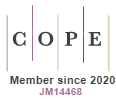Does Austerity Drives Healthcare Accessibility?
DOI:
https://doi.org/10.5585/rgss.v3i2.130Palavras-chave:
accessibility, healthcare system, economic crisis, healthcare, healthcare cost, waiting lists.Resumo
The financial crisis may impact on healthcare systems, and challenge healthcare accessibility by increasing the percentage of patients with unmet medical needs due to the cost, the distance, and waiting lists. In order to analyze if austerity drives healthcare accessibility, we take annual data at country level, for Germany, United Kingdom, Spain, France, Italy, Ireland, Greece, and Portugal, from 2005 to 2011 (n=56). The countries were clustered according to the external intervention during financial crisis. We consider a period ex-ante and another one ex-post crisis, and assess the difference in averages, by using the t Student test. This is followed by a correlation analysis by calculating Spearman’s coefficient, to assess if there is an association between the unemployment rate and the percentage of patients with unmet medical needs, considering the educational levels and income quintiles, regarding each one of the clusters. We found that during austerity there is an increase in the percentage of patients with unmet medical needs due to excessive cost, except for Germany and United Kingdom, but a decrease in the percentage of patients with unmet medical needs due to the distance and waiting lists. These figures were higher for low income and educational levels. For the cluster of France, Italy and Spain, the healthcare accessibility improves with increasing unemployment rates; but for Greece, Ireland and Portugal there is no association between accessibility and unemployment rate.
Downloads
Downloads
Publicado
Como Citar
Edição
Seção
Licença
Copyright (c) 2019 Revista de Gestão em Sistemas de Saúde – RGSS

Este trabalho está licenciado sob uma licença Creative Commons Attribution-NonCommercial-NoDerivatives 4.0 International License.
Autores mantém os direitos autorais e concedem à revista o direito de primeira publicação, com o trabalho simultaneamente licenciado sob a Creative Commons Atribuição - Não comercial - Compartilhar igual 4.0 Internacional que permite o compartilhamento do trabalho com reconhecimento da autoria e publicação inicial nesta revista.
Autores têm autorização para assumir contratos adicionais separadamente, para distribuição não-exclusiva da versão do trabalho publicada nesta revista (ex.: publicar em repositório institucional ou como capítulo de livro), com reconhecimento de autoria e publicação inicial nesta revista.
Autores têm permissão e são estimulados a publicar e distribuir seu trabalho online (ex.: em repositórios institucionais ou na sua página pessoal) a qualquer ponto antes ou durante o processo editorial, já que isso pode gerar alterações produtivas, bem como aumentar o impacto e a citação do trabalho publicado (Veja O Efeito do Acesso Livre) em http://opcit.eprints.org/oacitation-biblio.html
- Resumo 89
- PDF 70




